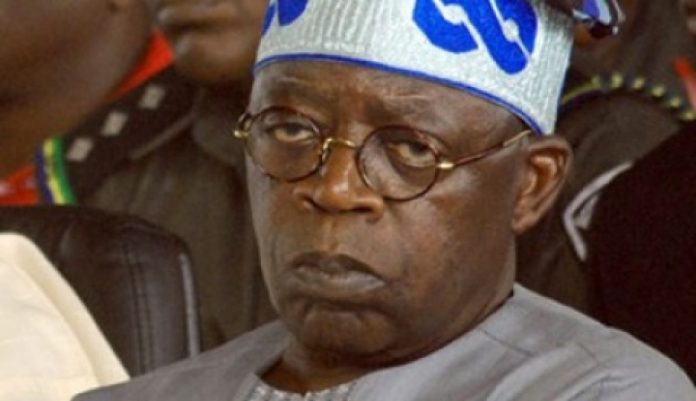The Nigeria Employers’ Consultative Association (NECA) and the Centre for the Promotion of Private Enterprise (CPPE) have raised alarm, stating that if implemented, the expatriate employment levy will not only frustrate the Federal Government’s on-going Fiscal and Monetary reforms, it will also serve as a disincentive to Foreign Direct Investment (FDI) among many other unintended negative consequences.
The Federal Ministry of Interior recently launched the Expatriate Employment Handbook, purportedly aimed at enhancing skills transfer in Nigeria.
However, NECA noted that the levy of between $10,000 to $15,000 on employers that employ expatriates when Nigeria is actively seeking FDI is not only exploitative and extortionist, it is also a contradiction that cannot be explained.
- Dangote Sugar targets 1.5mt annually from locally grown sugarcane
- How my love for fashion birth Wonderchildforkids — Oluwaseun Olukoya
Speaking in Lagos, the Director-General of the Association, Adewale-Smatt Oyerinde stated that “while we absolutely support the Federal Government’s objective of developing the local workforce, we have, in fact, been at the forefront of promoting skills transfer, Technical Skills Development and employment generation. However, the recently launched initiative of the Ministry of Interior has the potential to create more fundamental economic and socio-labour distortions. The imposition of US$15,000 and US$10,000 on organizations that employ expatriates at a time when businesses are shutting down and leaving the country in droves is worrisome. Recent results of many businesses have shown massive losses, a situation that could potentially increase the level of unemployment with dire socio-economic consequences.”
While raising Organized Businesses’ concern on the legality and appropriateness of the Levy, the Director-General stated “we are concerned at the legality and appropriateness of the Expatriate Employment Levy (EEL) as well as its effect on the economy. The provisions of a Handbook can never over-ride clear provisions of extant laws in Nigeria, especially the 1999 Constitution of the Federal Republic of Nigeria, Immigration Act and the Local Content Act among others.”
According to him, “the Ministry of Interior and indeed, the Government cannot impose a tax or levy without appropriate legislation. For instance, Section 59 of the Nigerian Constitution requires that any imposition of tax, duty, fee or levy must be backed by an Act of the National Assembly. Levies that are imposed without complying with the provisions of section 59 of the Constitution offends the Constitution and are illegal.”
The NECA boss also observed that “existing legislations, such as the Local Content Act and Immigration Act have already addressed objectives similar to those of the EEL Handbook – thus, covering the field. Therefore, the introduction of additional levies is an unnecessary duplication and could impede the ease of doing business in Nigeria”.
Articulating the potential impacts of the Levy, if implemented, Mr. Oyerinde noted that “the Levy, if implemented, will not only distort and frustrate the ongoing efforts at clear reform of the Fiscal and Monetary space but also contradicts and render ineffective the President’s ongoing quest for Foreign Direct Investment. Furthermore, a reciprocal implementation of the same policy by other countries will have dire consequences on the careers and progress of Nigerians who are expatriates in other nations.”
While proposing policy options and recommendation, the NECA boss urged that Government should rather seek to strengthening existing Regulatory Institutions responsible for managing expatriate employment rather than imposing additional levies, thus ensuring a more responsive and accountable regulatory framework in the implementation of extant laws; the adoption of fiscal incentives to enhance investment attractiveness, support business stability, and prioritize measures that facilitate ease of doing business to attract both local and foreign investors; collaborative efforts between the government and private sector to explore alternative revenue streams and promote wealth creation through dialogue and stakeholder engagement”
While warning of intended consequences of the policy, the CPPE called for the implementation of existing legislations.
It urged that the new policy can be targeted at sectors with the influx of unskilled foreigners. It listed such sectors to include construction, distributive trade, hospitality and logistics.
“The country needs more direct investors than portfolio investors at this time. But ironically, both foreign direct investors and domestic direct investors would be more negatively impacted than portfolio investors. The economy needs more investors in the real economy – oil and gas, manufacturing, infrastructure, mining, ICT, Healthcare – all of which require varying skills and competencies. The truth is that major FDIs will typically hire some critical staff to oversee their investments. It is imperative to give some consideration to this class of investors, given the scale of their investments which could be in billions of dollars,” it said in a statement signed by its CEO, Dr Muda Yusuf.
It also noted that the policy may trigger reciprocal actions from other countries and this may affect Nigerians in diaspora.
The CPPE, thus, appealed to the government to review the policy and undertake broader consultation to fine tune the policy to ensure that it does not hurt genuine investors in the country.





